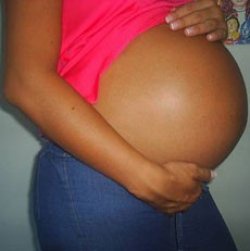Dr (Mrs) Dalali Margaret Badasu, Director in charge of the Centre for Migration Studies of the University of Ghana has expressed concern about the spate of teenage pregnancy in the country and said it was a threat to national development.
The Director, who is also a Senior Research Fellow of the Regional Institute of Population Studies of the University of Ghana, made the observation in an interview with the Ghana News Agency at Builsa North in the Upper East Region to present Research findings on quality health services.
She stressed that if concerted efforts and pragmatic solutions were not found to address the issue, it would be a disaster for the growth and development of the country.
A research conducted by Alliance for Reproductive Health Rights (ARHR) revealed that many teenagers, particularly school children in the Bongo North and Builsa Districts were continuously becoming pregnant, leading to many school dropouts in the areas.
To help curb the menace, Dr Badasu proposed a national policy and legal framework to be instituted to deal with culprits who engage in such negative acts, to serve as a deterrent to others, stressing that, “what is more worrying is that more teenagers were becoming mothers”.
Dr Badasu, who presented the key research findings at the validation forum, said although there had been a reduction in institutional maternal mortality rate and an increase in the use of Family Planning in many communities, it was necessary to help improve and sustain the achievement.
The stakeholders blamed the situation on irresponsible parenthood and called on parents including teachers and traditional leaders to collaborate to improve the situation.
The Programme Officer of the ARHR, Ms Patricia Opoku Afriyie, said since 2007, her outfit had been tracking the Millennium Development Goals four and five and noted that this had led to the improvement of supervised deliveries and anti-natal and postnatal care in its operational areas, including the Bongo and Builsa Districts of the Upper East region, and Agona East and Komenda Edina Eguafo Abirem Districts of the Central Region.
The Queen mother of the Bongo Traditional Area, Pognaba Christiana Asindikye Nge, who lauded the ARHR, impressed upon men to get actively involved in the maternal health issues by ensuring that they cater for the needs of pregnant women and children, and that, there were many instances where husbands had neglected their wives during labour periods, when they needed their support most.
The District Director of Builsa North, Ms Julian Adiale, acknowledged the role of ARHR and said through the complimentary role of the NGO, there had been significant achievement of the health indicators in the District, particularly in the area of supervised deliveries and anti-natal health care.
She noted that, it had helped reduce maternal and infant mortality in the District and urged the Organization to continue with its good works.
She mentioned the lack of transport and accommodation for health staff as some of the challenges confronting effective health delivery in the area.
The participants include traditional authorities, including Queen mothers, District Directors of Health, the youth, Civil Society Organizations and the Districts Assemblies from both Districts. They all expressed their worry about the phenomenon and reiterated that, the situation had forced many teenagers to drop out of school.
Among some of the major research findings revealed were, little involvement of men in maternal health care, the long distances pregnant women commute to health facilities, stigma attached to the youth who access reproductive health care, high supervised deliveries and antenatal and postnatal care.
The Mission for Hope and the Foundation for Integrated Strategic Development (FISTTRAD) both NGOs, supported the implementation of the activities in the two Districts.
Regional News of Monday, 1 September 2014
Source: GNA
Teenage Pregnancy, a threat to development - Dr Badasu













